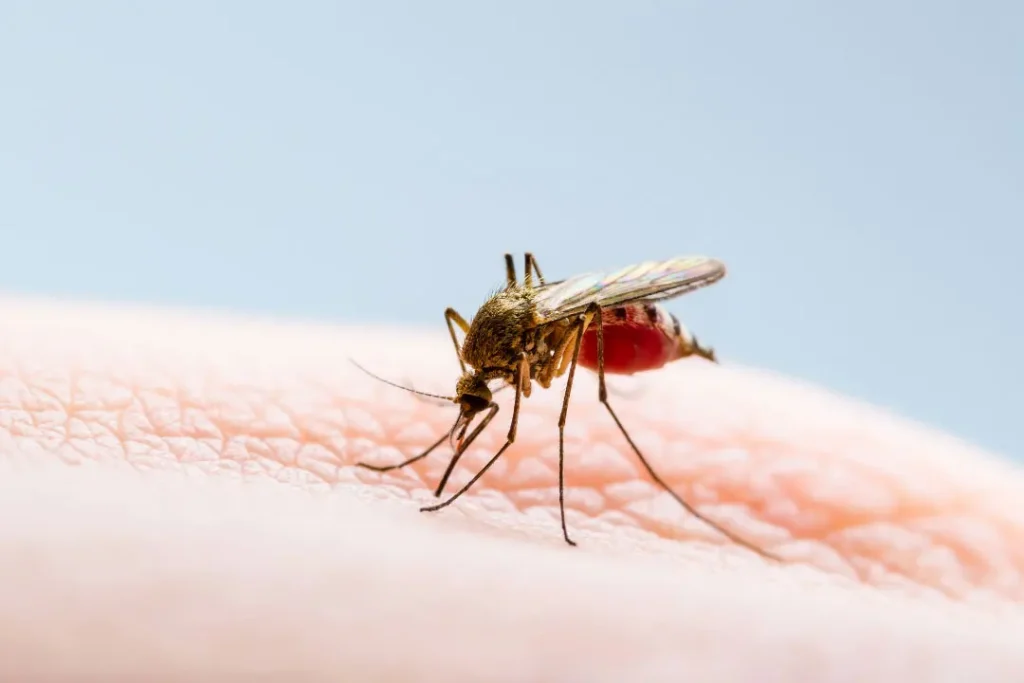Cinchona is a priceless botanical resource known for its medicinal benefits and historical significance. It is renowned for having a diverse range of medicinal properties due to its complex chemical makeup. This thorough overview will cover the characteristics of Cinchona, a significant medicinal plant, as well as its advantages for health, ideal dosage, possible side effects, and potential interactions.
You May Also Like:
The Best Mushroom Supplements for Memory: 5 Top Brands Reviewed
The Best Supplements for Memory and Brain Fog: 5 Top Brands Reviewed
Cinchona: Benefits, Dosage, Side Effects, Drug Interactions, and Other Important Information is an original (NootropicsPlanet) article.
Nature of Cinchona
South American tropical Andean forests are home to the flowering plant genus cinchona. Cinchona calisaya, cinchona officinalis, cinchona pubescens, and cinchona ledgeriana are the species most relevant in terms of pharmacology. The cinchona tree’s bark, also referred to as “Peruvian bark” or “Jesuit’s bark,” has varied medicinal uses that have been utilized throughout history.
Cinchona bark’s main ingredient is quinine, an alkaloid with antimalarial effects. Cinchona bark, in addition to quinine, also contains a number of other alkaloids, including quinidine, cinchonine, and cinchonidine, each of which adds to the bark’s distinct therapeutic profile.
Health Benefits
The antimalarial properties of cinchona bark and its derivatives, especially quinine, are well known. Quinine prevents the malaria-causing Plasmodium parasites from reproducing in red blood cells. The foundation of cinchona’s therapeutic use in malaria treatment is its inhibitory effect, preventing and treating infections commonly caused by mosquito bites.
Another alkaloid found in cinchona bark called quinidine is used as an antiarrhythmic. It helps maintain a regular heart rhythm by blocking specific electrical signals that can result in an irregular heartbeat.
Possible explanations for the analgesic and anti-inflammatory effects of cinchona bark include the presence of various alkaloids. These substances have the ability to prevent the synthesis of molecules that cause pain and inflammation.

Chemistry of Cinchona
Alkaloids like quinine, quinidine, cinchonine, and cinchonidine are among the most notable chemical components found in the cinchona plant, more specifically its bark. The majority of the plant’s medicinal properties come from these compounds.
The most prevalent and pharmacologically active alkaloid in cinchona bark is quinine. It is recognized for having antimalarial qualities and is structurally categorized as a 2-quinolinemethanol. The dextrorotatory isomer of quinine known as quinidine, which is also found in the bark, is thought to have antiarrhythmic properties. It is also known that the other two alkaloids, cinchonine and cinchonidine, help the Cinchona plant’s overall therapeutic efficacy.
Physiological Mechanisms of Action
The primary alkaloid in cinchona, quinine, has long been used to treat malaria. It works by preventing the malaria-causing Plasmodium parasites from procreating and growing inside red blood cells. Quinine, which is present in tonic water, prevents the parasite from degrading hemoglobin, which is an essential step in the parasite’s growth and multiplication. By lowering the number of parasites in the body, this action helps to lessen the disease’s symptoms.
Another alkaloid found in cinchona bark called quinidine contains antiarrhythmic properties. It works by shutting down some potassium channels and blocking sodium channels in the heart. The electrical signals in the heart are slowed down as a result, lowering the risk of abnormal heart rhythms and helping maintain a steady heartbeat.
The different alkaloids found in cinchona bark may be responsible for its analgesic and anti-inflammatory effects. These substances reduce the synthesis of molecules that cause inflammation and alter how pain is perceived, potentially reducing inflammation and pain.
Consequently, cinchona’s special chemical makeup and the physiological effects of its main alkaloids are directly related to its therapeutic benefits. Healthcare professionals should closely monitor the use of the plant due to its potency and the possibility of serious side effects and interactions. Understanding the potential of cinchona and its alkaloids in healthcare and medicine will require more study.

Optimal Dosage
Age, general health, and the condition being treated are just a few of the variables that affect the ideal cinchona dosage. A typical quinine dosage for malaria is 600–650 mg every eight hours for a week. Quinidine is typically given as an antiarrhythmic in doses ranging from 200 to 650 mg every six to eight hours. The dosage for each unique case should be decided by healthcare professionals, and these doses should only be taken as prescribed by a doctor.
Side Effects
Strong substances like cinchona and its derivatives can have serious side effects, such as cinchonism, which is characterized by symptoms like tinnitus, headache, nausea, and visual disturbances. Additionally, it may result in a rare but severe allergic reaction and specific heart issues.

Potential Substance Interactions
Several medicines can interact with cinchona. For example, it might intensify the effects of anticoagulants, which might cause excessive bleeding. Additionally, it may alter the concentrations of some medications in the body by interfering with their metabolism.

Responsible Use of Cinchona
Cinchona should only be used under careful supervision due to its strong effects and potential for adverse reactions and interactions. Always talk to a doctor before beginning a cinchona supplement, especially if you have a chronic illness or are taking medication. Cinchona is not recommended for use in the self-treatment of malaria or any other severe condition due to the risk of serious side effects and the potential for drug-resistant parasites.
In summary, cinchona is an intriguing medicinal plant with a lengthy history and promising therapeutic applications. However, due to its strong effects, use should be done under professional supervision. The investigation of cinchona and its derivatives is still underway.
Cinchona:
Conclusion
Best known for its primary alkaloid quinine, cinchona has been historically used as an effective treatment against malaria. Safely incorporating cinchona into your health regimen, especially during the summer months, can prevent you from getting infections carried by pesky mosquitoes. However, if you are currently suffering from malaria, cinchona cannot and should not be used as the sole treatment method. Though cinchona can prove to be a helpful supplement, it has the potential to adversely interest with anticoagulates. Those who currently take these medications should refer to the advice of their medical provider to ensure their cinchona consumption is safe and recommended.
References:
- The fever tree: The cinchona in Peru and its significance in the history of medicine. Retrieved From: https://www.jstor.org/stable/44443406
- Quinine, an old anti-malarial drug in a modern world: Role in the treatment of malaria. Retrieved From: https://www.ncbi.nlm.nih.gov/pmc/articles/PMC3121651/
- Quinidine: A diverse drug with multiple clinical uses. Retrieved From: https://www.researchgate.net/publication/260617654_Quinidine_A_diverse_drug_with_multiple_clinical_uses
Important Note: The information contained in this article is for general informational purposes only, and should not be construed as health or medical advice, nor is it intended to diagnose, prevent, treat, or cure any disease or health condition. Before embarking on any diet, fitness regimen, or program of nutritional supplementation, it is advisable to consult your healthcare professional in order to determine its safety and probable efficacy in terms of your individual state of health.
Regarding Nutritional Supplements Or Other Non-Prescription Health Products: If any nutritional supplements or other non-prescription health products are mentioned in the foregoing article, any claims or statements made about them have not been evaluated by the U.S. Food and Drug Administration, and such nutritional supplements or other health products are not intended to diagnose, treat, cure, or prevent any disease.


